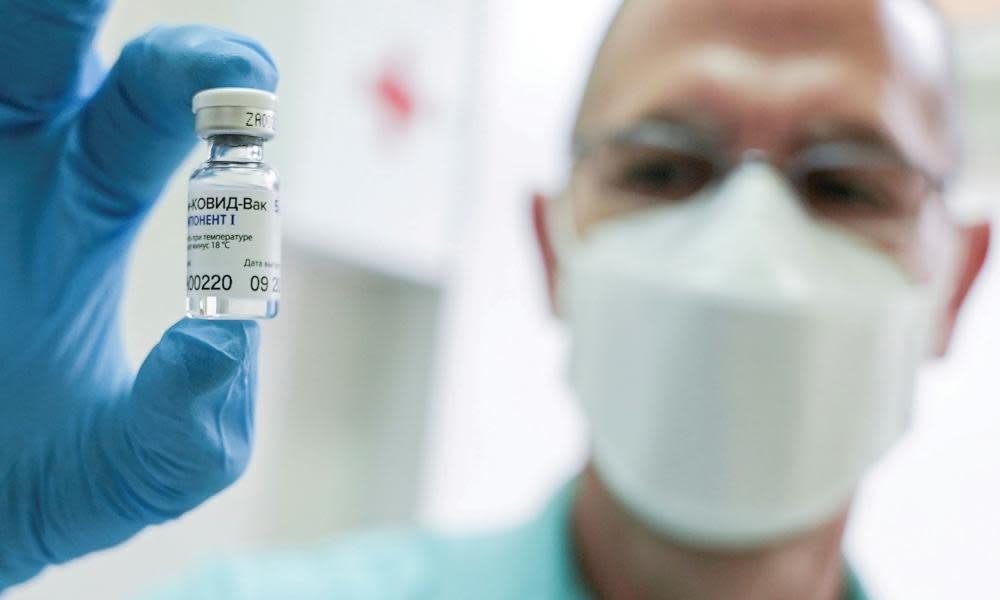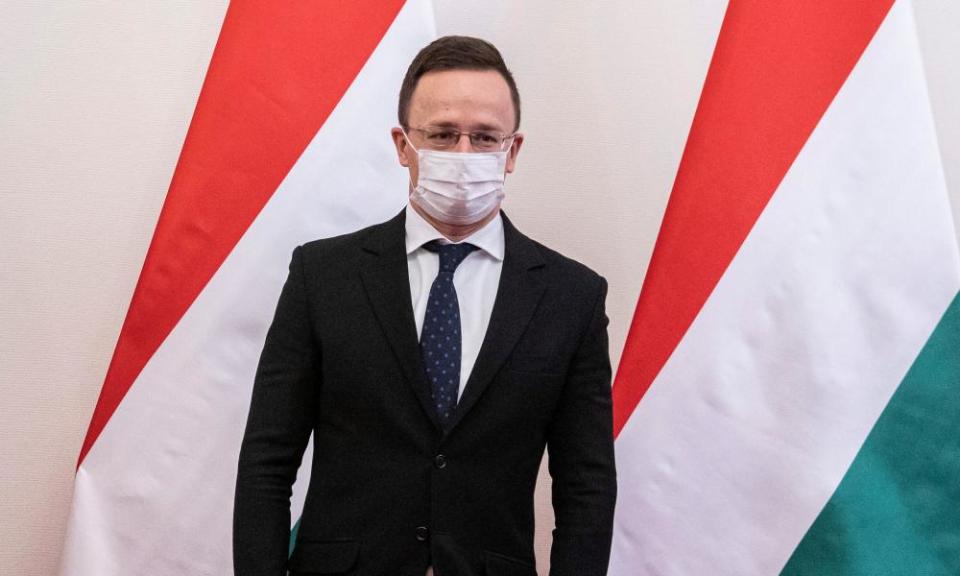Hungary breaks ranks with EU to license Russian vaccine

Hungary has licensed Russia’s coronavirus vaccine, breaking ranks with other EU countries and ignoring calls to stick to a common European vaccine policy.
Its foreign minister, Péter Szijjártó, was on his way to Moscow on Thursday to discuss the purchase, after Hungary’s medical body gave the Sputnik V vaccine emergency approval.
Viktor Orbán, Hungary’s rightwing prime minister, has been strongly critical of the slow speed of the EU vaccine distribution programme. His chief of staff, Gergely Gulyás, said on Thursday: “If vaccine shipments arrive at this rate from Brussels, we can only get vaccines from other, alternative sources.”
So far abut 140,000 people in Hungary have been vaccinated, with the Pfizer-BioNTech and Moderna vaccines. Officials are also in Beijing for talks over the approval of China’s Sinopharm vaccine.
Surveys show Hungarians are among the biggest vaccine sceptics in Europe, with fewer than half prepared to be vaccinated, and critics say licensing Russian and Chinese vaccines may increase this sentiment.
default
Hungarian opposition parties have long cautioned against breaking ranks with the EU. In November, the liberal Democratic Coalition party asked the European commission to prevent Hungary licensing the Russian vaccine. “We will not be the guinea pigs of the Russians or any other power,” its MEP, Sándor Rónai, said.
Sputnik was developed and trialled at breakneck speed, leading some scientists to fear that a desire to be first in the international vaccine race was taking precedence over proper testing. Vladimir Putin approved the vaccine on the basis of very limited data from trials, in which, it was reported, state employees were coerced to take part. However, the data published so far has been promising.
Kirill Dmitriev, CEO of the Russian Direct Investment Fund, which is in charge of promoting the Russian vaccine abroad, said results of third-phase trials would be published in an authoritative medical journal next week. “A large number of people who tried to paint Sputnik V negatively have no arguments left,” he said on Thursday.

Dmitriev praised the Hungarian government for ignoring scepticism over the Russian vaccine. “We’ve been really fighting for this from day one, that vaccines should be separate from politics,” he said.
The European Medicines Agency (EMA) has to license vaccines before they can be used in any EU country, but member states are able to license products temporarily using an emergency procedure. Hungary’s National Institute of Pharmacy and Nutrition says it has granted a six-month authorisation for the Sputnik vaccine, which could be extended for another six months.
Related: BioNTech criticises EU failure to order enough Covid vaccine
Sputnik has now been authorised in 12 countries outside Russia, including Argentina, Venezuela and Turkmenistan. Moscow’s allies Belarus and Serbia were the only European nations to have licensed the vaccine before Hungary.
However, in a sign that European attitudes towards the Russian vaccine may be changing, Angela Merkel, the German chancellor, said on Thursday that she had offered German support on the development of Sputnik, and that if the EMA approved it, it would be possible to talk about joint production or use. “Beyond all the political differences that are currently large, we can nevertheless work together in a pandemic, in a humanitarian area,” she said.
Russian authorities applied to the EMA for registration in the EU earlier this week.

 Yahoo Movies
Yahoo Movies 
